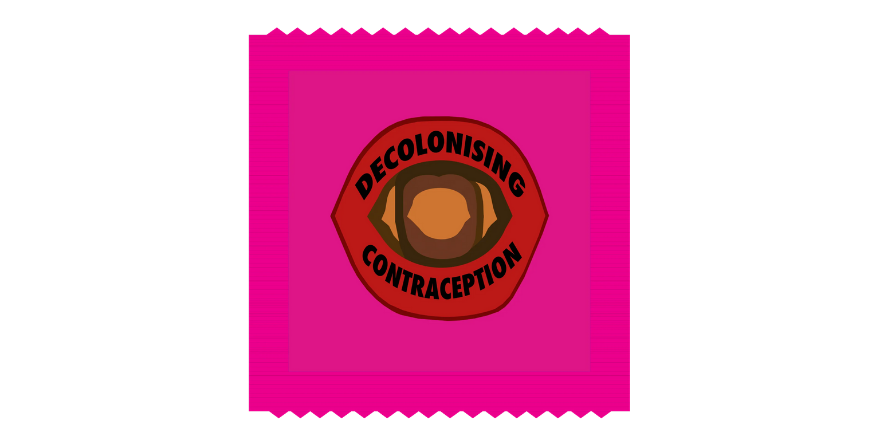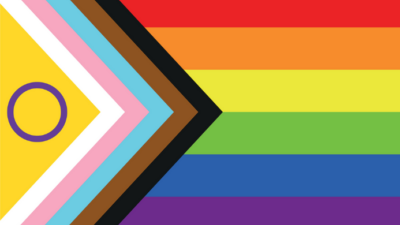All about the collective working to decolonise contraception and so much more

During Pride we’re celebrating the ways we are #ProuderTogether. So Gayathiri also highlights the work of another organisation making an impact in LGBTQ+ communities.
Decolonising Contraception (DC), founded by Dr Annabel Sowemimo in 2018 is an interdisciplinary collective of Black people and people of colour, working to address sexual health inequalities experienced by our communities due to colonisation. We do this through workshop facilitation, campaigning and providing safer spaces for our communities to support one another. It’s central to our work that every month is Black History Month and every month is Pride Month.
Decolonising ... is how we undo the damage done by colonisation.
‘Decolonising' (decolonising, because it is a continuous process) is how we undo the damage done by colonisation. It is about trying to understand and give voice to cultures, languages and identities that have been brutally criminalised and erased. For example, within school and community workshops we discuss decolonising ‘beauty standards’ and the dismantling of the idea that white skin = ideal. We unpack critical questions such as, ‘who creates our definition of beauty?’ and ‘what if we weren’t penalised for dressing and expressing ourselves according to what felt right to us?’
DC’s ‘Decolonising Gender and Sexuality’ workshop is another example of how tailored information can bring about self-advocacy skills. We speak about how colonialism cemented the gender binary and criminalised gender non-conformity and queerness in parts of Africa and Asia in the 19th century. And that due to colonisation, these diasporic communities absorbed an imported homophobia which takes work to unlearn.
It’s important to know that your gender and sexuality are yours to explore and define.
We talk about how it’s important to know that your gender and sexuality are yours to explore and define. That they do not belong to anyone else, and that other people do not have the right to pass on your private information. That you never have to 'come out' if it's not safe or beneficial to you. That ‘coming out' and 'being proud' is not a moral action you have to perform. That there are visible BPOC, queer people around us, but that you don’t have to be one unless you want to. Indeed, for many BPOC folk, inviting family and our communities in on our queer lives is not an option if we also want to maintain ties, and have emotional, financial and housing security. This is not unique to the queer-BPOC experience. But the idea of being selective about who you invite in, isn’t always validated within ‘mainstream’, queer circles.
As those who are underserved by healthcare too, it’s important for BPOC to be able to advocate for better treatment. We want our communities to know that they can get (sexual) health treatment and advice confidentially, that they can go back and ask about different options for treatment and that they can ask for a different doctor if they feel unfairly treated. Knowledge and access to all the above is a basic human right. Speaking to Paula Akpan for Daye, Dr Sowemimo says, ‘we should expect medical professionals to be treating us the same way clinically but that is not happening. In the interim, we have to devise strategies within our own communities that enable people to have better health literacy.’
In 2020, DC started a podcast series entitled ‘The Sex Agenda’ to discuss all things BPOC sexual health. Episodes have explored issues including, ‘Reproductive Justice’, ‘Fetishisation of East Asian Women ’ and ‘Black Fatherhood’ In September 2020, DC was named Grassroots Organisation of the year by Brook and SH:24‘s Sexual Health Awards. By equipping our communities with decolonising, critical thinking and self-advocacy tools we aim to offer some form of resistance to systemic oppression.
An organisation I’d like to celebrate is Land In Our Names (LION.) LION aims to disrupt oppressive land dynamics relating to BPOC communities in Britain within a Reparative Justice framework. ‘[They] address land justice as a centre point for issues around food insecurity, health inequalities, environmental injustice & widespread disconnect from nature.’ It’s crucial that we recognise the interconnected nature of systemic oppressions, racial-capital-land-environmental-reproductive injustices define and uphold one another. Across movements and sectors, our work for liberation is and will continue to be bound together.
Find out more about Decolonising Contraception and support their work on their website or on Instagram. Find Gayathiri’s Instagram here.
There are a number of organisations out there offering support if you need it. Check out the organisations and resources Gayathiri recommends below.


